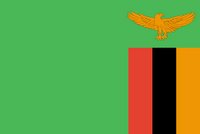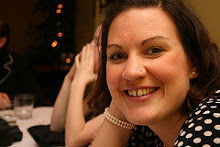ZAMBIA

So, this is ZAMBIA. It will be my home away from home until August of 2008. It is the one that looks kinda like a curled up E.T. in a way. I leave on June 5th, 2006 to start training as an HIV/AIDS Project Volunteer. I expect it will be the most challenging and exciting experience of my life thus far.
Things I knew about Zambia prior to any Peace Corps supplied information:
- Little to no industry after the fall in the price of copper back in . . . (oops, I don't remember when, details). However, now the price of copper has gone way up. In fact, this guy told me the other day that it now costs the U.S. Government more than a penny to make a penny. I think the rise in the price of copper has something to do with a boom in construction in China these days. I digress.
- My friend Chad is from the Kitwe area (in Copperbelt Province). He speaks Bemba. Chad says there is "nothing to do" and his parents have sent him and his siblings elsewhere for school and opportunity. He hasn't been back to see them in several years. However, he has promised to come visit me! So they will be seeing each other sometime soon!
- Zambia has a border on Victoria Falls (one of the seven natural wonders of the world) and amazing river rafting on the Zambezi. It also borders DR Congo, Tanzania, Malawi, Mozambique, Zimbabwe, Botswana, Namibia, and Angola. In other words, it is landlocked.
- Other than that, not a whole lot (not that that was a whole lot).
Things I know about Zambia now that it is about to be my home (this list should grow exponentially from now until forever):
- Many Zambians refer to their country as "Zed" (according to my Zambian friend Chad).
- The life expectancy in Zambia is 37 years young - or 39, or 35 depending on the source. Either way, very young. This is not a war-torn country, these numbers are due to the AIDS pandemic.
- There is a 15% - 16% prevalence of HIV/AIDS in Zambia (that means about one out of every 6 people is infected).
- By 2010, one out of every three children in Zambia will be orphaned by AIDS.
- Zambia is slightly larger than the state of Texas and it has some very diverse terrain.
- The majority of Zambians are hard-core Christians.
- The main mode of transportation in Zambia is hitchiking, frequently on a truck transporting livestock. (I will be riding a bike [maybe 40 miles] - to get to the livestock trucks.) I can't wait to see my parents riding with the goats and chickens!
- English is the official language in Zambia, but there are 8 major vernaculars, and over 70 other indigenous languages. I am hoping I will learn Bemba, so I can talk to Chad (his English is better than mine).
- Zambia has in the last year qualified for debt cancellation, as it has been listed among the 17 poorest countries in the world. So they can now use the money they were paying to The African Development Fund and the World Bank for their own development projects. Yay!
- Caterpillars and termites are delicacies in Zambia, eaten on special occasions (rare special occasions only, I hope).
- The staple food in Zambia is nsima (pronounced "in-shee-ma"). It is a lot like the "pap" I consumed in South Africa: basically like rubbery mashed potato.
- The flag looks like this:


